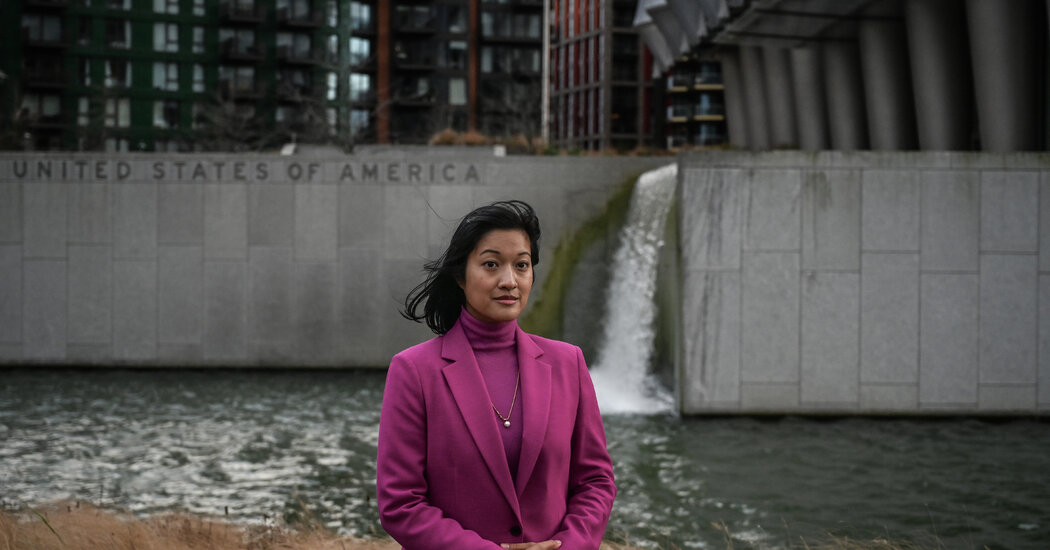When Thomas Wong set foot in the United States Embassy in Beijing this summer for a new diplomatic posting, it was vindication after years of battling the State Department over a perceived intelligence threat — himself.
Diplomatic Security officers had informed him when he joined the foreign service more than a decade ago that they were banning him from working in China. In a letter, he said, they wrongly cited the vague potential for undue “foreign preference” and suggested he could be vulnerable to “foreign influence.”
Mr. Wong had become a U.S. diplomat thinking that China was where he could have the greatest impact. He had grown up in a Chinese-speaking household and studied in the country. And as a graduate of West Point who had done an Army tour in the Balkans, he thought he had experience that could prove valuable in navigating relations with the United States’ greatest military and economic rival.
As he looked into the ban, he discovered that other diplomats — including many Asian American ones — faced similar restrictions. Security officers never gave the exact reasons, and they made the decisions in secret based on information gathered during the initial security clearance process. Thousands of diplomats have been affected by restrictions over the years.
I’ve been working in information security for many years now and this is standard practice all over the world. I’m sure the State Department is happy to have Asian Americans working for them. This is not that kind of discrimination.
It’s a practical thing: It’s basically impossible to tell if a person has a secret loyalty to another country. So how do you prevent spies from infiltrating your organization(s) from any given county? You take basic precautions like preventing people who have very direct ties to a country from working for you in that country. It’s basically best practices because there’s not much else you can do.
If I were a 2nd generation American Chinese citizen (e.g. my parents immigrated there) living in China and I applied to work for the Chinese embassy in the US do you really think the Chinese government would allow that? Hell no!
Would they let me work in Africa or other areas of Asia? Maybe! But the US would be a no-go zone for sure. There’d be no way the Chinese government would trust me not to have a secret loyalty to the US.
Not only that but if someone still has family living in a foreign country that’s a big red flag as well. It can get you reassigned regardless of your ethnicity.
Let’s say you’ve been working in the US embassy in China and your sister married a Chinese man who has family in China: You would would have to report that change in family status to the State Department (it’s part of the rules). Then they’d make a determination as to whether or not you could keep working where you are.
Isn’t this a pretty standard practice across the world? If someone has extensive ties to and/or sympathies for a specific regime, they’ll be more susceptible to coercion and compromise by that regime. Why purposely put them in the place where they are most likely to be coerced and/or compromised?
You have to weigh the benefit (their familiarity with local perspectives and customs) against the cost (increased risk of counter-intel failures).
There’s a reason Starfleet sends Captain Picard far away to the Romulan border when the Borg are attacking Earth. Or am I missing something?
Doesn’t sound like he had extensive ties or sympathies for the regime. Otherwise the security people could have said that. Their concerns were non specific. Basically, he’s Chinese too which is a weak reason.
The US and discrimination. Name a more iconic duo, I’ll wait.




